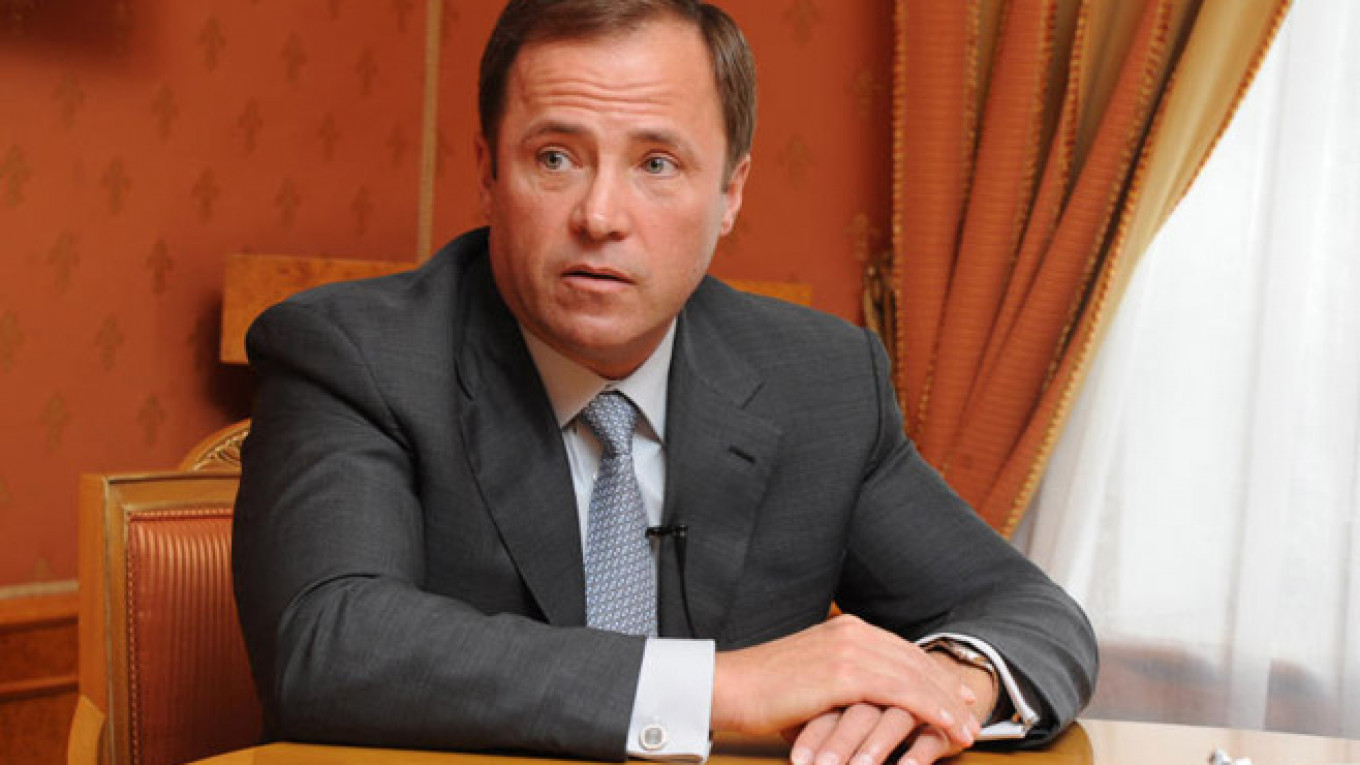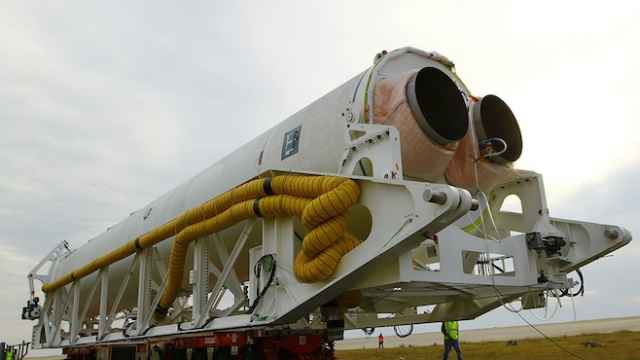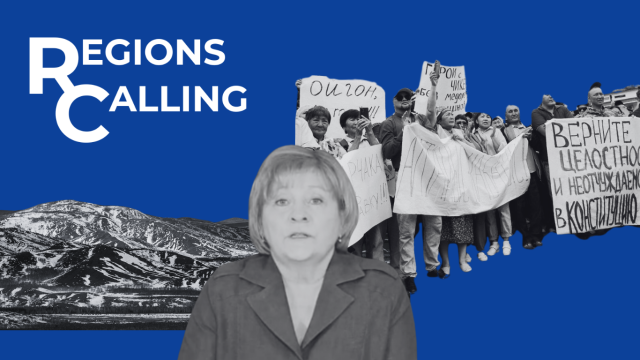President Vladimir Putin on Wednesday backed the creation of a sector-spanning space corporation designed to revitalize the commercial rocket industry and advance Russia's growing cosmic ambitions.
Putin said the plan to unite the federal space agency, Roscosmos, with United Rocket and Space Corporation (URSC) in a new corporate behemoth that will retain the Roscosmos name was "the right proposal" during a cabinet meeting on Wednesday, the TASS news agency reported.
The union would meld the federal space agency's strategic oversight function with the industrial might of state-owned URSC — which was itself created from the union of some of Russia's key space firms in an effort to increase efficiency in 2013.
Prime Minister Dmitry Medvedev, who sponsored the plan, was quoted as saying: "Our recent experience shows that the sector's problems are more serious and more complex, and we must therefore concentrate the government's efforts a little differently."
Medvedev cited the positive example of Rosatom, a state corporation descended from the Soviet Ministry of Medium Machine Building that united Russia's atomic industries in 2007 and has proven a successful exporter of Russian nuclear technology.
But Ivan Moiseyev, head of think tank the Institute of Space Policy, told TASS that the union of Roscosmos-URSC "could worsen the situation" in the sector rather than bring greater efficiency.
Medvedev proposed that the new company be headed by URSC chief Igor Komarov. Komarov, 50, is an industrial manager parachuted in to URSC from car maker AvtoVAZ who has spent much of his career in the private sector. He will edge out Roscosmos boss Oleg Ostapenko, a 57-year-old retired colonel general and former head of Russia's space forces, at the top of the industry.
The reorganization comes as Russia ramps up its space ambitions. Space strategy documents being considered by the government talk of investing trillions of rubles in space exploration, and amid a rocky patch for U.S.-Russian relations, officials are talking of building a national space station.
Russia is also trying to overcome a series of failed rocket launches in recent years that have struck the country's reputation as a supplier of reliable space hardware.
Despite its Soviet overtones, Russia is a fan of creating vast state corporations to boost industrial sectors. Aside from Rosatom, United Aircraft Corporation was created in 2006 to revitalize the aviation industry, and a national oil services company was proposed last year to help Russia survive Western sanctions on exports of oil technology to Russia.
A Message from The Moscow Times:
Dear readers,
We are facing unprecedented challenges. Russia's Prosecutor General's Office has designated The Moscow Times as an "undesirable" organization, criminalizing our work and putting our staff at risk of prosecution. This follows our earlier unjust labeling as a "foreign agent."
These actions are direct attempts to silence independent journalism in Russia. The authorities claim our work "discredits the decisions of the Russian leadership." We see things differently: we strive to provide accurate, unbiased reporting on Russia.
We, the journalists of The Moscow Times, refuse to be silenced. But to continue our work, we need your help.
Your support, no matter how small, makes a world of difference. If you can, please support us monthly starting from just $2. It's quick to set up, and every contribution makes a significant impact.
By supporting The Moscow Times, you're defending open, independent journalism in the face of repression. Thank you for standing with us.
Remind me later.






